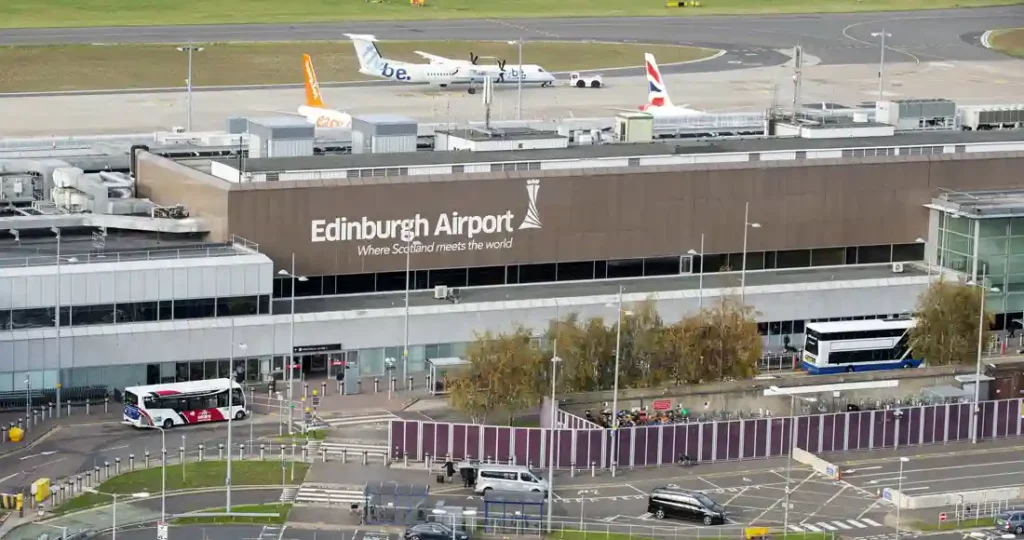Edinburgh Airport’s Runway Closure to Disrupt Winter Flights in 2025-26
Gordon Dewar, CEO of Edinburgh Airport, discusses the upcoming runway resurfacing project and its potential impact on flight schedules, highlighting the balance between necessary infrastructure work and operational disruptions.

Photo Source: Skytrax
Edinburgh Airport is set to close its runway for up to eight weeks during the winter of 2025-26 as part of a major resurfacing project aimed at extending the runway’s lifespan. The closure, which is expected to cause significant disruption, will take place overnight and could lead to flight cancellations, reduced services, and the loss of some destinations, according to airport officials.
Gordon Dewar, CEO of Edinburgh Airport, acknowledged the potential impacts during a recent consultative committee meeting, noting that airlines had been notified well in advance to prepare for the disruption. “There’s a risk that we could lose some destinations or see significant reductions in flights,” Dewar said. “We are giving airlines plenty of time to adjust their schedules.”
The resurfacing work follows a series of emergency repairs to the runway surface over the past year, which resulted in nearly 100 flight disruptions. The planned closure is expected to take place during Edinburgh’s quieter overnight hours, though precise dates for the closure have yet to be confirmed.
While the airport is optimistic about its recovery, with passenger numbers expected to exceed 15 million this year, the winter runway closure is likely to cause some headaches for travelers. Airport officials are working to minimize disruption, but there are concerns that the project could affect late-night arrivals and reduce the airport’s overall capacity.
Despite these challenges, Dewar remains confident in the airport’s long-term growth trajectory, especially in international traffic, which is showing strong recovery. Emirates has resumed flights to Dubai, and American Airlines is set to restart its Philadelphia route next year.
The resurfacing project’s timing has been strategically chosen to avoid the busiest travel periods, which should help reduce the impact on passengers, according to the Scottish Passenger Agents Association. However, some late-night flights could still experience delays or cancellations.






